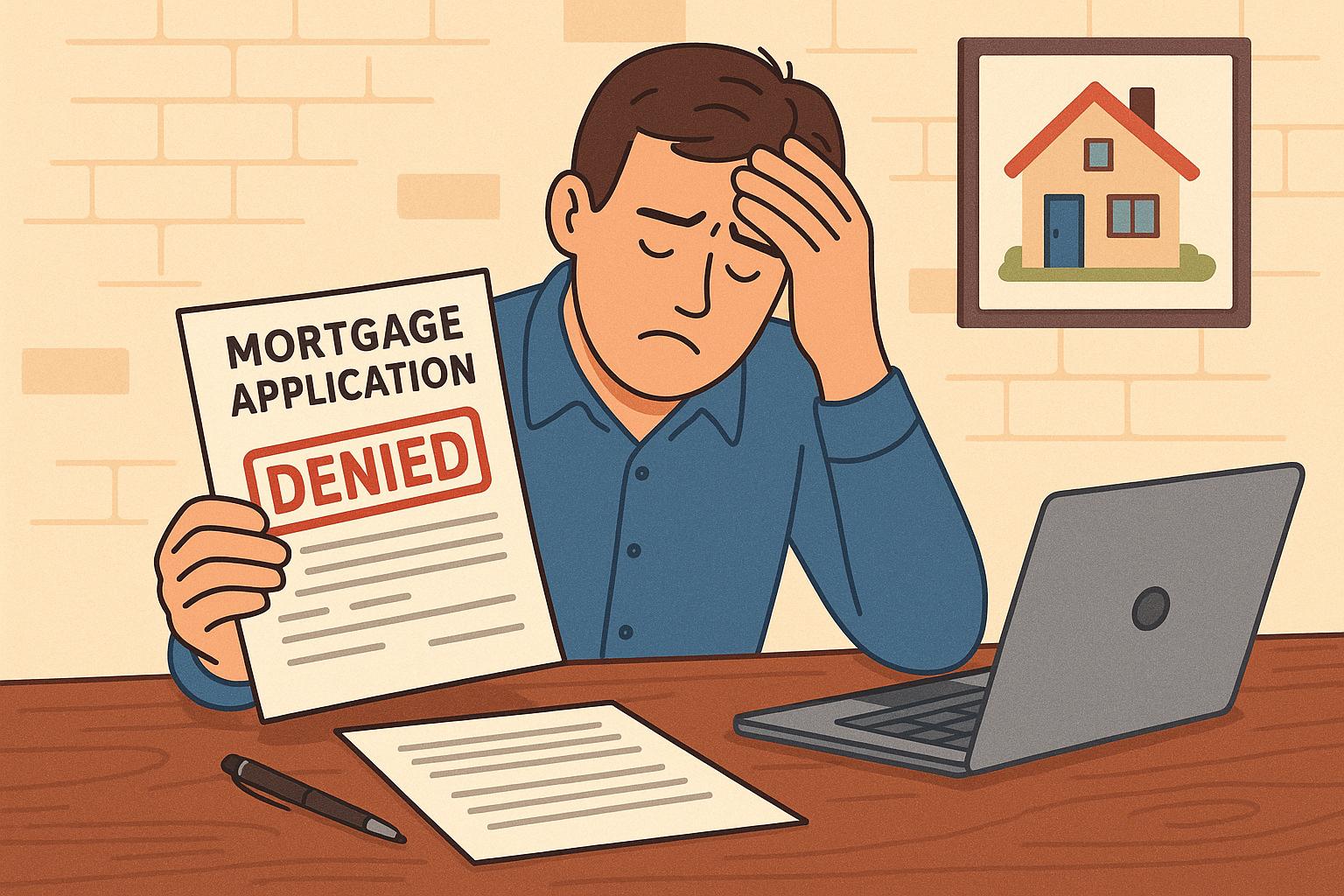
Receiving a denial on your mortgage application can be disheartening, but understanding the reasons behind the decision is crucial. Most often, mortgage applications are denied due to issues such as poor credit history, insufficient income, high debt-to-income ratio, or problems with the property appraisal.
The first step after a denial is to carefully review the denial letter from your lender. This document will outline the specific reasons for the decision. Understanding these factors will help you address them effectively.
Your denial letter will highlight key issues and may include terms like “credit history,” “income levels,” or “property value.” Identifying these factors will give you a clear starting point on how to improve your situation.
If credit issues were a factor, obtain a copy of your credit report from major credit bureaus. Looking for any errors or discrepancies that could have negatively impacted your score is essential. This process could reveal inaccuracies in your report, such as accounts that are not yours, incorrect account statuses, or old inquiries that should no longer be affecting your credit.
Should you discover errors, it is crucial to challenge them with the credit bureau. Typically, this involves submitting a written dispute along with any supporting documents. Ensuring your report is accurate can provide a significant boost to your credit score.
Improving your financial profile can increase your chances of approval in the future. This may involve various strategies, including:
Paying Down Existing Debts: Lowering your debt-to-income ratio is vital. Consider creating a strict budget to allocate funds for paying off debts more aggressively. Prioritize high-interest debts first, as this will reduce overall financial strain.
Enhancing Your Credit Score: Ensure that all bills and obligations are paid on time. Late payments are one of the most significant factors that can lower your credit score substantially. Simple steps like setting up automatic payments or calendar reminders can be beneficial.
Saving for a Larger Down Payment: The larger your down payment, the more attractive your application will be. Assess your saving patterns, cut unnecessary expenses, and explore ways to improve your savings rate to reach a significant down payment quicker.
Different lenders have different criteria, so exploring other avenues might prove fruitful:
Mortgage Brokers: A mortgage broker can offer guidance by matching you with lenders that best suit your financial situation. Brokers have access to various lenders, possibly increasing your chances of finding a match.
Government-Backed Loan Programs: Programs such as FHA, VA, or USDA loans provide alternative qualification avenues. They often come with benefits like lower down payment requirements or more flexible credit standards.
Not all lenders offer the same products or services. By engaging with different lenders, you might find one whose criteria you meet or one willing to offer better terms. Don’t hesitate to discuss your previous denial and inquire if a particular lender can accommodate your circumstances.
Before reapplying, it’s important to address the factors that led to the initial denial. Once you have improved your financial situation, gather all necessary documents and reassess your budget, ensuring you accurately understand what you can afford.
Create a detailed financial plan outlining income, expenses, debts, and assets. A comprehensive plan not only aids you in understanding financial capability but also shows lenders that you are financially responsible and serious about the mortgage process.
It’s imperative not to rush the reapplication. Take the time to ensure that all previous issues have been fully addressed. Rushing could result in another denial, which might affect your credit score again.
For personalized advice tailored to your situation, consider consulting with a financial advisor. Financial advisors can provide guidance not only on improving financial health but also on the nuances of the mortgage market and potential strategies for securing better terms.
Some financial advisors specialize in helping clients repair and build their financial profiles before major purchases. Engaging with an advisor could expedite getting your finances in a suitable position for mortgage approval.
A mortgage application denial is not the end of the road. By understanding the reasons behind the decision and taking proactive steps, you can improve your financial profile and increase your likelihood of success when you reapply. Remember, persistence and patience are key in navigating the complexities of securing a mortgage. Taking the time to learn from the experience, you augment your chances of future success while also building a more stable financial foundation.
This article was last updated on: October 30, 2025